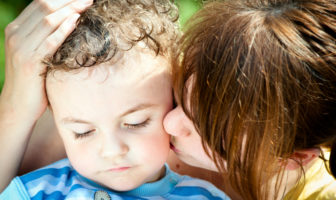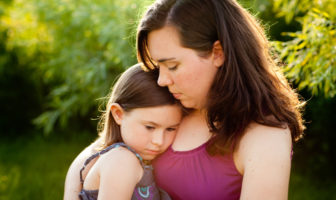Wonderful list of ways parents can reduce their stress and practice healthy self care.

Understanding Stress: Positive, Tolerable and Toxic
Stress is a natural part of the life course and is a biological response to certain experiences. Everyone experiences stress at some point, often starting in early childhood. Stressful situations can be temporary or permanent. Starting a new school and meeting new people may be stressful for your child for a brief period. However, the death of a close family member can create stress that may last for years. There are three categories of stress: positive, tolerable, and toxic.
Positive stress is stress experienced when we are excited or nervous. Our heart rate might go up, or we may sweat briefly. A child may feel positive stress before his first day of school and might feel eager or worried. For adults, when can feel the effects of positive stress when starting a new job or planning for a wedding. Parents can support their children by recognizing, validating, and helping their children verbalize their thoughts and feelings.
Tolerable stress is stress experienced during a challenging time and generally goes away once the event that triggered the stress is over. Children may experience tolerable stress when a beloved pet dies, or if an environmental disaster has occurred. In adults, tolerable stress can occur due to an important project at work or moving to a new home. A buffer for children dealing with tolerable stress is a supportive environment and positive relationships. Parents can help their children deal with tolerable stress by teaching and modeling coping strategies.
Toxic stress is the worst time of stress and is long-lasting. Toxic stress has the potential to negatively impact the physical and mental health and development of your child. Examples of toxic stress in children are physical and sexual abuse, physical and emotional neglect, police brutality and neighborhood violence. In adults, toxic stress can manifest from Intimate Partner Violence (IPV) and experiencing racism. Read more about helping children combat toxic stress here.
Creating safe and nurturing environments for children that include love, affection and attention will help your child manage all three types of stress. Taking care of yourself and seeking support from others when you need it are essential to managing your own stress as a parent. Access our resource finder to find organizations and programs near your location.
other articles and videos we love
Self-care is critical when it comes to solo-parenting, here's a great list of ways to practice self-care while parenting on your own.
This infographic tells a story about how parents-with great love and affection-try to help their anxious children. It also tells a silent tale about what those children wish they could express to their parents about what they are experiencing.






